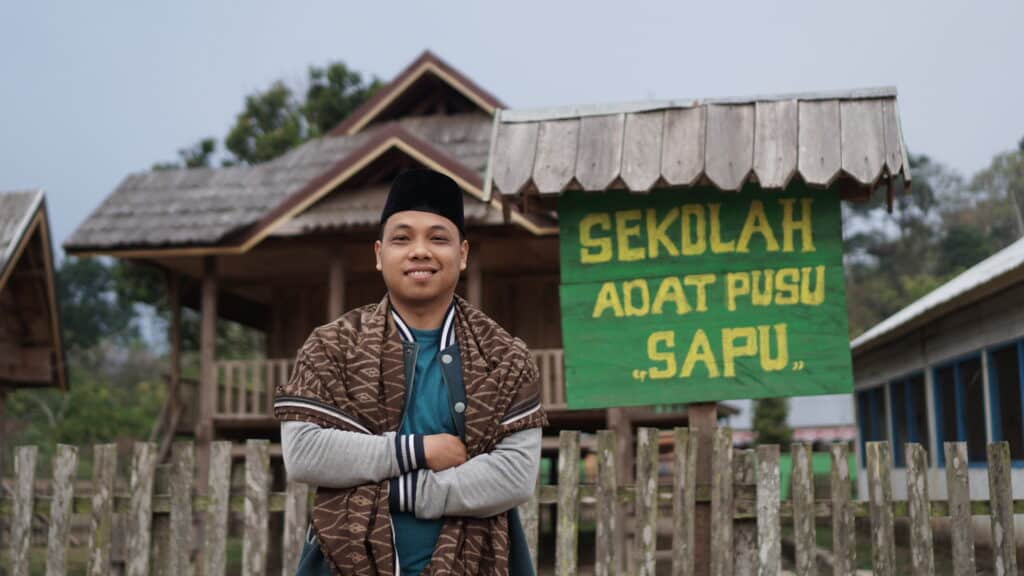
Muhammad Syukron Anshori is the Head of the Media and Information Unit at the Indigenous Peoples’ Alliance of the Archipelago, also known as AMAN. Anshori also lectures at the Sumbawa University of Technology.
Anshori participated in a unique DTP online training program for Indonesian rights advocates. The program was developed with the Australian Human Rights Institute and the UNSW Institute for Global Development. It took place over six months.
“In the DTP training, I learnt how human rights mechanisms work and how we could use diplomacy to negotiate in a political situation. The training was focused on Indigenous peoples’ rights, women’s rights, and the rights of disabled people. In essence, I have strengthened my understanding of how rights work. I kept all the reading materials and will use those materials in my future work.”
Anshori says the training was helpful for him to compare the Indigenous peoples’ rights situation with other countries, including Australia. “The training has made me realize that we have a lot of work to do in Indonesia to advance the rights of Indigenous peoples.”
AMAN works intensively with the Indigenous peoples to enable Indigenous communities to have political sovereignty, economic independence and cultural dignity. AMAN works at local, national and international levels to represent and advocate for Indigenous peoples’ rights. As of January 2021, AMAN’s network included 2,422 Indigenous communities and an estimated 20 million Indigenous peoples.
These communities are linguistically and culturally diverse, and share deep and spiritual connections to the land, which is usually held under community title. This custodianship may not be recognised. As in other countries Indigenous peoples face discrimination, and are overrepresented in statistics on poverty, and lack of access to education. They face negative perceptions in the wider community – and are sometimes portrayed as anti-development.
Indigenous communities also face problems of land grabbing and displacement for mining, forestry, palm oil and other plantations. Indigenous community advocates who protest are often at great risk from local policy and powerful interests.
“It is not an easy task to campaign for Indigenous rights in Indonesia as the Indigenous community here do not have the bargaining power to negotiate their rights. However, we strategically advance by coordinating local, national and international advocacy.”
Anshori said his father had inspired him to work in human rights advocacy.
“From childhood, I have seen that my father has supported local communities in various ways, including empowering youths. I believed in his work, and that is why I chose to continue what he was doing.”
DTP acknowledges the traditional custodians of the land on which we work, the Bedegal people of the Eora Nation. We recognise their lands were never ceded, and we acknowledge their struggles for recognition and rights and pay our respects to the Elders – past, present – and the youth who are working towards a brighter tomorrow. This continent always was and always will be Aboriginal land.
Aboriginal and Torres Strait Islander peoples should be aware that this website contains images or names of people who have passed away.
DTP acknowledges the traditional custodians of the land on which we work, the Bedegal people of the Eora Nation. We recognise their lands were never ceded, and we acknowledge their struggles for recognition and rights and pay our respects to the Elders – past, present – and the youth who are working towards a brighter tomorrow. This continent always was and always will be Aboriginal land.
Aboriginal and Torres Strait Islander peoples should be aware that this website contains images or names of people who have passed away.
Privacy Policy | Terms of Use | Disclaimer | Policies
© 2022 Diplomacy Training Program | ABN 31 003 925 148 | Web Design by Studio Clvr